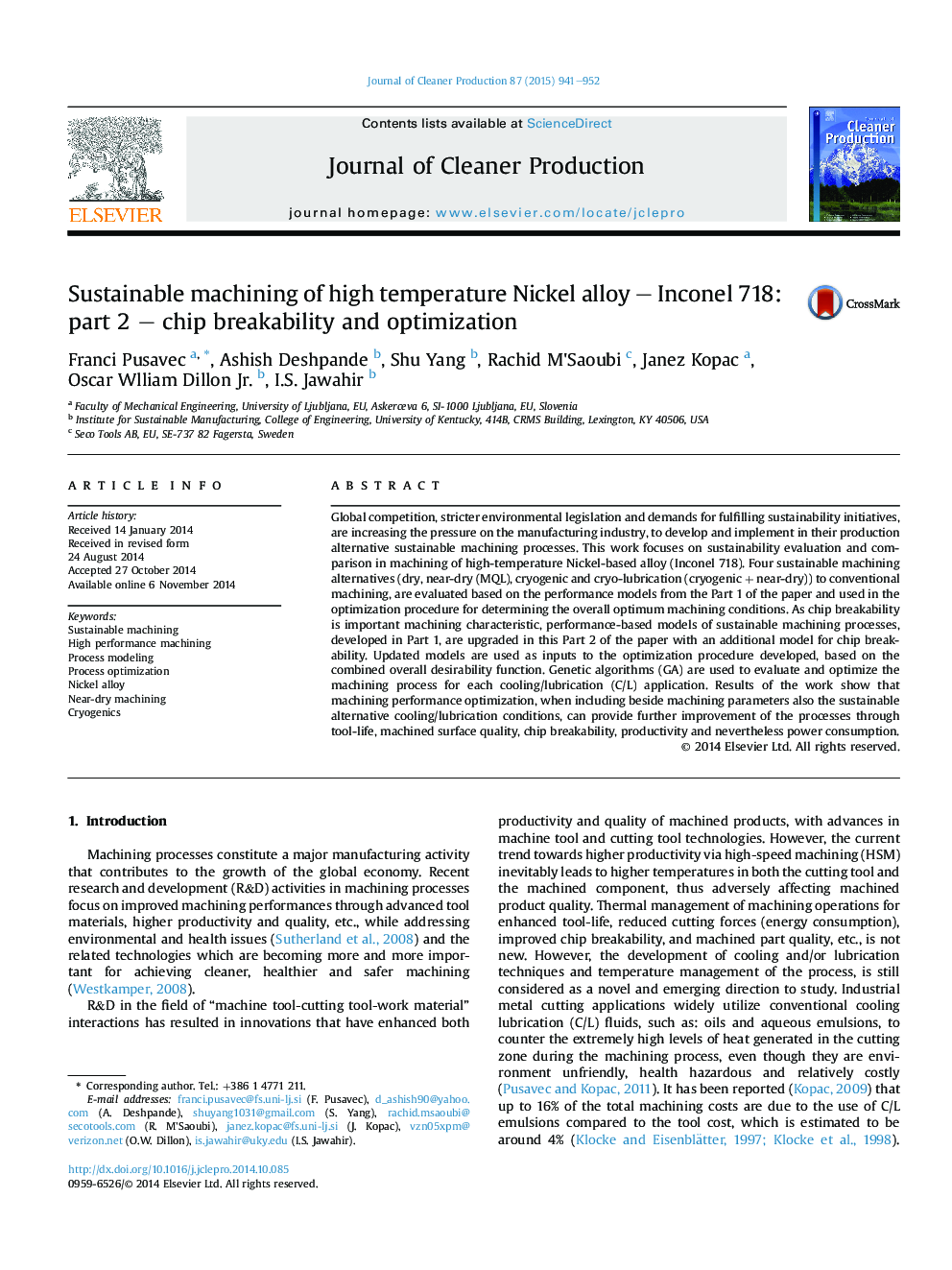| Article ID | Journal | Published Year | Pages | File Type |
|---|---|---|---|---|
| 8105609 | Journal of Cleaner Production | 2015 | 12 Pages |
Abstract
Global competition, stricter environmental legislation and demands for fulfilling sustainability initiatives, are increasing the pressure on the manufacturing industry, to develop and implement in their production alternative sustainable machining processes. This work focuses on sustainability evaluation and comparison in machining of high-temperature Nickel-based alloy (Inconel 718). Four sustainable machining alternatives (dry, near-dry (MQL), cryogenic and cryo-lubrication (cryogenic + near-dry)) to conventional machining, are evaluated based on the performance models from the Part 1 of the paper and used in the optimization procedure for determining the overall optimum machining conditions. As chip breakability is important machining characteristic, performance-based models of sustainable machining processes, developed in Part 1, are upgraded in this Part 2 of the paper with an additional model for chip breakability. Updated models are used as inputs to the optimization procedure developed, based on the combined overall desirability function. Genetic algorithms (GA) are used to evaluate and optimize the machining process for each cooling/lubrication (C/L) application. Results of the work show that machining performance optimization, when including beside machining parameters also the sustainable alternative cooling/lubrication conditions, can provide further improvement of the processes through tool-life, machined surface quality, chip breakability, productivity and nevertheless power consumption.
Keywords
Related Topics
Physical Sciences and Engineering
Energy
Renewable Energy, Sustainability and the Environment
Authors
Franci Pusavec, Ashish Deshpande, Shu Yang, Rachid M'Saoubi, Janez Kopac, Oscar Wlliam Jr., I.S. Jawahir,
